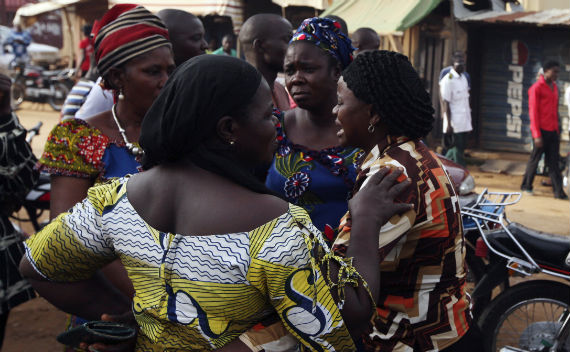Nigeria in Never-Never Land?
More on:

Putting recent developments together, there is an unreality about Nigeria three months after the April elections.
Boko Haram violence continues to intensify and spread. According to press accounts, as many as forty people have been killed in a number of incidents since July 4. Boko Haram claimed victims in Suleja, Niger state, just north of Abuja. One Nigerian press source even claims that Boko Haram has established an operations base in Suleja. Boko Haram also claimed responsibility for weekend bombings in Kaduna, the former capital of the northern region and two hundred kilometers north of Abuja. In the capital itself there is a 10 pm curfew, and the press reports massive traffic jams because of police checkpoints. (See our Nigeria Security Tracker for a list of incidents.)
In the Delta, a government spokesman estimates that three hundred thousand barrels of oil are stolen per day, plenty to fund a threatened resurgence of the insurrection there associated with the Movement for the Emancipation of the Niger Delta (MEND). Ethnic and religious tensions around Jos remain high. Lagos, the economic capital of the country and one of the world’s largest cities, remains largely untouched by political violence, but flooding, a natural calamity, claimed a number of lives over the weekend.
Against this background of mayhem and natural calamity, President Goodluck Jonathan continues with the formation of his cabinet and his selection of advisors. He has created new ministries, bringing the total to forty. His ceremonial travel is unabated. On Saturday, he was present in Juba for the inauguration of South Sudan. According to Nigerian press sources, during his recent visit to Washington, President Obama reiterated a long-standing request for Nigeria to send peace keepers to Somalia. Yesterday, again according to the Nigerian press, Jonathan’s administration publicly confirmed that Nigerian peace keepers are enroute to Somalia, despite his obvious domestic security challenges.
Beneath the surface of seeming normality, however, there are signs that the government and its political allies are becoming more defensive. Malim Nasir el-Rufai, former minister of the Federal Capital Territory (the largest cabinet department), was arrested over the July 4 weekend for charging essentially that the government is too expensive. He was subsequently released after sixteen hours of captivity. El Rufai’s charges were echoed by incoming finance minister Ngosi Okonjo Iweala in confirmation testimony before the Nigerian senate, though unlike El Rufai, she did not emphasize the costs of the security services. At the same time, the security services are detaining alleged “sect” leaders under anti-terrorism legislation. Meanwhile, only three weeks after the two presidents met at the White House, the governor of Nassarawa state publicly charged that Boko Haram is a manifestation of the American prediction that Nigeria would disintegrate, and he called for an investigation of the linkage between the two. Such a claim seems especially bizarre given Boko Haram’s strongly indigenous character.
More on:
 Online Store
Online Store